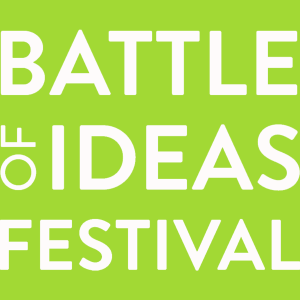
- Podcast Features
-
Monetization
-
Ads Marketplace
Join Ads Marketplace to earn through podcast sponsorships.
-
PodAds
Manage your ads with dynamic ad insertion capability.
-
Apple Podcasts Subscriptions Integration
Monetize with Apple Podcasts Subscriptions via Podbean.
-
Live Streaming
Earn rewards and recurring income from Fan Club membership.
-
Ads Marketplace
- Podbean App
-
Help and Support
-
Help Center
Get the answers and support you need.
-
Podbean Academy
Resources and guides to launch, grow, and monetize podcast.
-
Podbean Blog
Stay updated with the latest podcasting tips and trends.
-
What’s New
Check out our newest and recently released features!
-
Podcasting Smarter
Podcast interviews, best practices, and helpful tips.
-
Help Center
-
Popular Topics
-
How to Start a Podcast
The step-by-step guide to start your own podcast.
-
How to Start a Live Podcast
Create the best live podcast and engage your audience.
-
How to Monetize a Podcast
Tips on making the decision to monetize your podcast.
-
How to Promote Your Podcast
The best ways to get more eyes and ears on your podcast.
-
Podcast Advertising 101
Everything you need to know about podcast advertising.
-
Mobile Podcast Recording Guide
The ultimate guide to recording a podcast on your phone.
-
How to Use Group Recording
Steps to set up and use group recording in the Podbean app.
-
How to Start a Podcast
-
Podcasting
- Podcast Features
-
Monetization
-
Ads Marketplace
Join Ads Marketplace to earn through podcast sponsorships.
-
PodAds
Manage your ads with dynamic ad insertion capability.
-
Apple Podcasts Subscriptions Integration
Monetize with Apple Podcasts Subscriptions via Podbean.
-
Live Streaming
Earn rewards and recurring income from Fan Club membership.
-
Ads Marketplace
- Podbean App
- Advertisers
- Enterprise
- Pricing
-
Resources
-
Help and Support
-
Help Center
Get the answers and support you need.
-
Podbean Academy
Resources and guides to launch, grow, and monetize podcast.
-
Podbean Blog
Stay updated with the latest podcasting tips and trends.
-
What’s New
Check out our newest and recently released features!
-
Podcasting Smarter
Podcast interviews, best practices, and helpful tips.
-
Help Center
-
Popular Topics
-
How to Start a Podcast
The step-by-step guide to start your own podcast.
-
How to Start a Live Podcast
Create the best live podcast and engage your audience.
-
How to Monetize a Podcast
Tips on making the decision to monetize your podcast.
-
How to Promote Your Podcast
The best ways to get more eyes and ears on your podcast.
-
Podcast Advertising 101
Everything you need to know about podcast advertising.
-
Mobile Podcast Recording Guide
The ultimate guide to recording a podcast on your phone.
-
How to Use Group Recording
Steps to set up and use group recording in the Podbean app.
-
How to Start a Podcast
-
Help and Support
- Discover

Battle of Ideas Festival Audio Archive
Society & Culture

Recorded at the Battle of Ideas festival 2018 on Saturday 13 October at Barbican, London.
ORIGINAL INTRODUCTION
Politics has often comprised a battle over, and a battle using, language. For example, the distinction between ‘terrorist’ and ‘freedom fighter’ is as much an exercise in political mudslinging as it is a philosophical difference. However, with knee-jerk denunciations of President Trump and his supporters as ‘literal Nazis’, and Brexit voters as racist xenophobes, have the normal battles over political language morphed into something else?
Today, we seem to see not just the utilisation of existing terms to delegitimise opposition, but a proliferation of completely new terms as well. Old white men become ‘gammons’, women critical of feminism have ‘internalised misogyny’, students are ‘snowflakes’, and society is under siege from ‘whiteness’, ‘neoliberalism’, or ‘transphobia’. To even question the reality of such concepts is seen to be ‘erasing’ the marginalised. Meanwhile, new insults like TERF, SJW and ‘normie’ proliferate, with the aim of maligning the motives or deriding the views of those so labelled.
Aside from the nastiness of some contemporary political vocabulary, it is the sheer effort required to stay conversant in contemporary political terminology that attracts attention. It is not uncommon to find oneself completely lost – or completely unwelcome – in a political conversation if you don’t know how to speak the new political language. While this can prompt the demand to ‘get with it granddad’, it also marks a worrying evolution in the restriction of public discourse: an inability or unwillingness to speak the new code effectively rules one out of polite society.
However, campaigners are quick to point out the usefulness of new terms such as ‘gaslighting’ or ‘mansplaining’: they highlight imbalances in power and other injustices. But does such a discourse prove helpful to political progress, or further estrange ordinary people from an increasingly jargon-obsessed political and cultural elite? Is the proliferation of new political and cultural terms a good way to address serious political challenges, or an example of the weaponisation of language? Fundamentally, what’s the line between the natural evolution of political language, and the degeneration of political language into trendy slurs?
SPEAKERS
Professor Frank Furedi
sociologist and social commentator; author, How Fear Works: culture of fear in the 21st century and Populism and the European Culture Wars
Sophia Gaston
director, Centre for Social and Political Risk, Henry Jackson Society; visiting research fellow, London School of Economics
Simon Lancaster
speechwriter; author, Winning Minds: secrets from the language of leadership and You Are Not Human: how words kill; TEDx speaker
Professor Dr Robert Pfaller
philosopher, University of Art and Industrial Design, Linz, Austria; author, (in German) Adult language: about its disappearance from politics and culture
CHAIR
Claire Fox
director, Academy of Ideas; author, I STILL Find That Offensive!
More Episodes
 2025-04-03
2025-04-03
 1
1
 2025-04-03
2025-04-03
 1
1
 2025-04-03
2025-04-03
 2
2
 2025-04-03
2025-04-03
 2
2
 2025-04-03
2025-04-03
 1
1
 2025-04-02
2025-04-02
 2
2
 2025-04-02
2025-04-02
 2
2
 2025-04-02
2025-04-02
 10
10
 2025-04-02
2025-04-02
 3
3
 2025-04-02
2025-04-02
 2
2
 2025-04-02
2025-04-02
 4
4
 2025-04-02
2025-04-02
 4
4
 2025-04-02
2025-04-02
 3
3
 2025-04-02
2025-04-02
 2
2
 2025-04-02
2025-04-02
 4
4
Create your
podcast in
minutes
- Full-featured podcast site
- Unlimited storage and bandwidth
- Comprehensive podcast stats
- Distribute to Apple Podcasts, Spotify, and more
- Make money with your podcast
It is Free
- Privacy Policy
- Cookie Policy
- Terms of Use
- Consent Preferences
- Copyright © 2015-2025 Podbean.com



